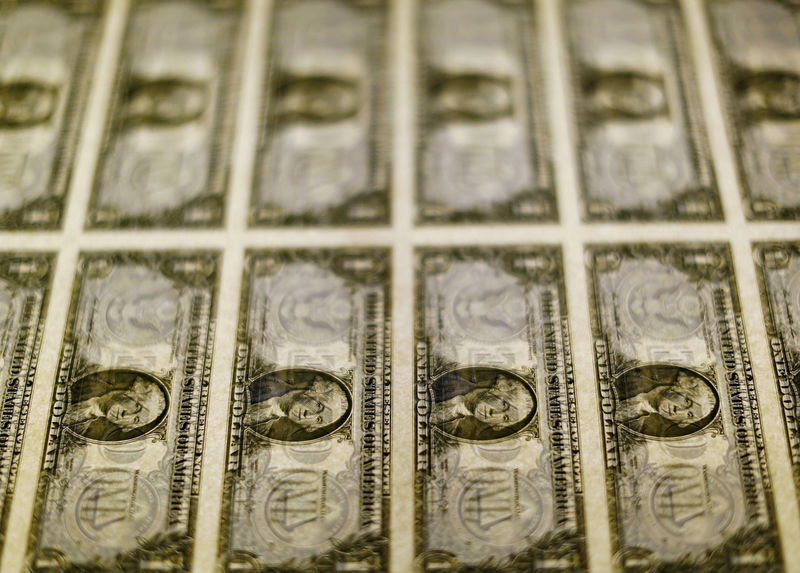Investing.com - The U.S. dollar was trading near two-week lows other major currencies on Wednesday, as mounting concerns over potential trade wars due to new U.S. import tariffs continued to weigh heavily on the greenback.
The greenback weakened after U.S. President Donald Trump said on Tuesday that he would push ahead with his tariffs on steel and aluminum imports despite growing pressure from political allies to back down from the measures.
Last week Trump announced plans to impose imports tariffs of 25% on steel and 10% on aluminum in a recommitment to his nationalist trade agenda.
Markets were also jittery after Trump's economic adviser Gary Cohn announced his resignation on Tuesday. The decision was said to have been made following a disgreement between Cohn and the U.S. President over the import tariffs.
Traders fear that the proposed tariffs could spark inflation and provoke retaliation from U.S. trade partners. Major holders of U.S. Treasuries, including China and the European Union, could reduce their holdings of U.S. assets in response.
The U.S. dollar index, which measures the greenback’s strength against a trade-weighted basket of six major currencies, was down 0.11% at 89.46 by 05:15 a.m. ET (09:15 GMT), just off a two-week trough of 89.38 hit overnight.
The euro was higher, with EUR/USD up 0.19% at 1.2427, while GBP/USD slipped 0.11% to 1.3872.
Elsewhere, the yen and the Swiss franc were stronger, with USD/JPY down 0.44% at 105.64 and with USD/CHF sliding 0.34% to 0.9377.
The Australian and New Zealand dollars were on the downside, with AUD/USD shedding 0.26% to 0.7809 and with NZD/USD edging down 0.15% to 0.7279.
Meanwhile, USD/CAD climbed 0.40% to trade at 1.2927, as investors were eyeing the Bank of Canada's interest rate decision due later in the day.
The Bank of Canada has said that uncertainty about the future of the North American Free Trade Agreement is weighing increasingly on the outlook for Canada's economy.
